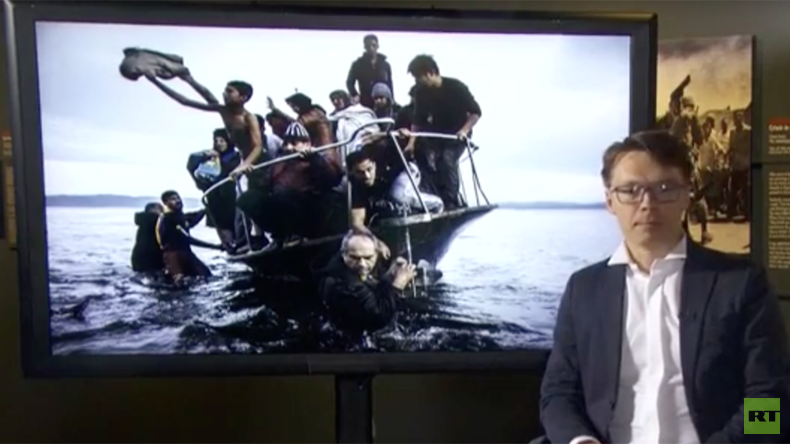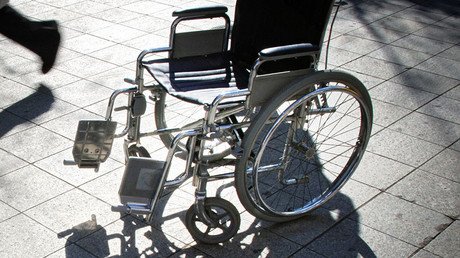'The hardships, the brutal police': Pulitzer winner describes covering refugee crisis to RT (VIDEO)

The refugee crisis proved to be “more exhausting to report” than war, the winner of the Pulitzer Prize for Photography, Sergey Ponomarev, told RT. The seasoned photojournalist also shared the one thing that left him puzzled about many asylum seekers.
Two teams of photographers who captured powerful and haunting images of refugees and migrants fleeing their countries won the Pulitzer Prize for Breaking News Photography last week. RT America’s Alexey Yaroshevsky spoke to one of the winners, Sergey Ponomarev, about what it’s like to see the plight of refugees firsthand.
'You see the hardships, the brutal police’: Pulitzer-winning p...'You see the hardships, the brutal police’: Pulitzer-winning photographer talks to RT about refugees Two teams of photographers took home the Pulitzer Prize for Breaking News Photography. They captured powerful and haunting images of refugee migrants fleeing their countries. RT America’s Alexey Yaroshevsky spoke to one of the winners, Sergey Ponomarev, about what it’s like to see the plight of refugees firsthand.
Posted by RT America on Friday, October 14, 2016
“There was a range of experiences and feelings that I encountered reporting this crisis,” Ponomarev said. “When I started working, it was just a small story. A few boats were arriving to Lesbos island, and then the number rose to significant, huge numbers and it was like, 50 boats a day.”
Eventually, the Moscow-based news photographer was left mystified by the refugees’ “entire desire just to move to some particular country, not just to go to safety.”
“That was my main concern and my thoughts were about that,” he said.
“When you see Afghan people, who lived in a landlocked country and then they decided to go, entire families with babies, to cross the sea, to get on a boat for the first time in their lives. So, there should be some significant power that started moving them,” Ponomarev said.
The Pulitzer winner has covered wars up close, but the refugee crisis was something else entirely.
“When you cover war,” he said, “most of the time you know where one conflict side is and where the other conflict side is, but there was no such feeling when I reported on the refugee crisis.”
He shared that it “was quite more exhausting to report on that, because you just constantly see the hardships and sufferings of people and you see brutal police.”
“This was a kind of conflict but not a military conflict,” he said. “It was a conflict of societies and impossibility of one society to be more human.”
The emotionally daunting task did not break Ponomarev’s focus.
“First, I am a professional,” he explained. “I have the experience to block that. I don't know how to do that. I don't have a solution for that, but you must feel that you are kind of a... You don't have to encounter that first hand with you. You are not a tourist when you're covering news. You have to be the eyes of society, so you have to bring your picture unbiased and untouched and un-set up to the public.”













